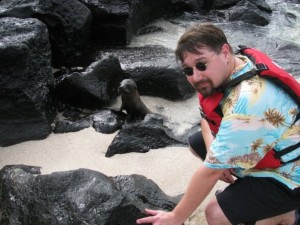
This is part of the new regular column on science communication. To suggest a topic, email blog@scienceartfusion.com.
Imagine, for a moment, that you’re in middle school. The spring formal is approaching and if you don’t have a date, you will literally die ohmygod. Your goal is “find someone to go to the dance with me”. You can’t just walk into the cafeteria and scream “SOMEONE GO TO THE DANCE WITH ME”. (I mean, you can, but…) You need to be tactical. You need to have a specific audience in mind.
A poorly defined audience (or one that is overly broad) is the root cause of the vast majority of issues I run into when I’m working with someone on their science outreach. From “I don’t know where to start” to “I can’t get anyone to listen/subscribe/come to my talk/donate,” my first question is always going to be “who is your audience?”. My next question is going to be “okay, now can you narrow that down”?.
The temptation is always going to be to have the broadest audience possible. If you aren’t appealing to EVERYONE you might miss out on potential opportunities! You could turn away a potential audience! You could miss out on the chance to be the most beloved science communicator that ever communicated!
Read More “Defining Your Audience (Or How To Plan The Worst Birthday Ever)” »
